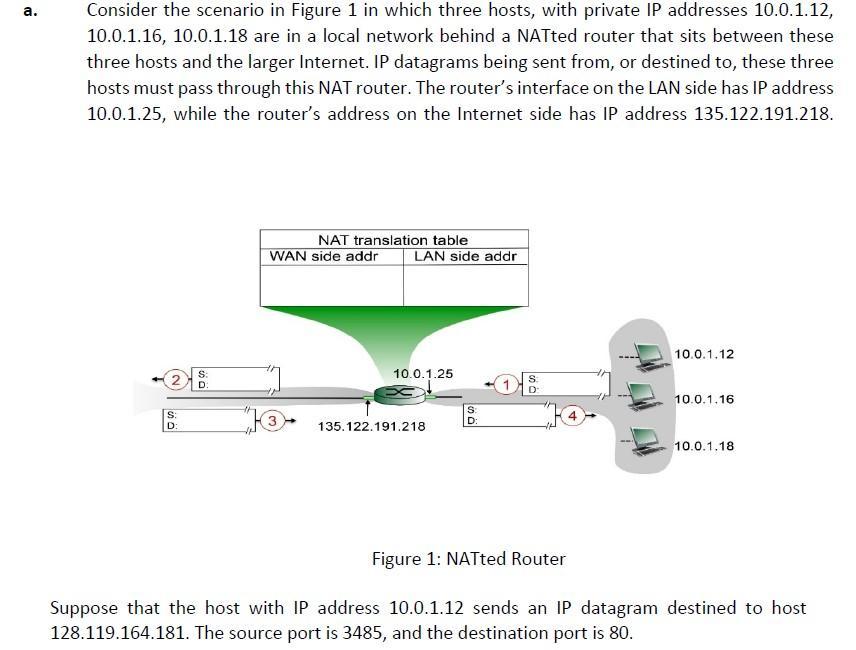Question: a. Consider the scenario in Figure 1 in which three hosts, with private IP addresses 10.0.1.12, 10.0.1.16, 10.0.1.18 are in a local network behind


a. Consider the scenario in Figure 1 in which three hosts, with private IP addresses 10.0.1.12, 10.0.1.16, 10.0.1.18 are in a local network behind a NATted router that sits between these three hosts and the larger Internet. IP datagrams being sent from, or destined to, these three hosts must pass through this NAT router. The router's interface on the LAN side has IP address 10.0.1.25, while the router's address on the Internet side has IP address 135.122.191.218. S: D: S: D: NAT translation table WAN side addr LAN side addr 10.0.1.25 135.122.191.218 10.0.1.12 S D: 10.0.1.16 S: D: 10.0.1.18 Figure 1: NATted Router Suppose that the host with IP address 10.0.1.12 sends an IP datagram destined to host 128.119.164.181. The source port is 3485, and the destination port is 80. 1) Consider the datagram at step 1, after it has been sent by the host but before it has reached the NATted router. What are the source and destination IP addresses for this datagram? What are the source and destination port numbers for the TCP segment in this IP datagram? 2) Now consider the datagram at step 2, after it has been transmitted by the NATted router. What are the source and destination IP addresses for this datagram? What are the source and destination port numbers for the TCP segment in this IP datagram? Identify the differences in datagram's IP addresses and port numbers between step 1 and step 2. Specify the entry that has been made in the router's NAT table. 3) Next consider the datagram at step 3, just before it is received by the NATted router. What are the source and destination IP addresses for this datagram? What are the source and destination port numbers for the TCP segment in this IP datagram? 4) Last, consider the datagram at step 4, after it has been transmitted by the NATted router but before it has been received by the host. What is the source and destination IP address for this datagram? What are the source and destination port numbers for the TCP segment in this IP datagram? Identify the differences in datagram's IP addresses and port numbers between step 3 and step 4. Has a new entry been made in the router's NAT table, or removed from the NAT table? Explain your answer.
Step by Step Solution
There are 3 Steps involved in it

Get step-by-step solutions from verified subject matter experts


